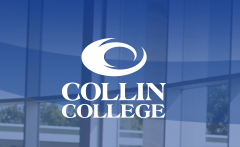The Echo Chamber
Abstract
John Frick
The Echo Chamber
Texas A&M University Commerce
Abstract:
Political polarization seems to be rising in America and indeed across the world, and there does not seem to be a clear explanation of the reason behind it. Some attribute it to international events such as 9/11, while others blame the millennial generation; yet what if it is something else entirely? What if our ever increasing dependence on social media for news can have adverse effects on the political climate? The “echo chamber” in this case refers to the idea that social media users will often delete or unfollow other users who have different opinions; this leads to those users then only getting responses agreeing with their political views, with no one left to challenge them. This effect might then lead those same users to vote differently, or become more radical in their views, as they will be increasingly susceptible to groupthink. Not only were these ideas discussed in the paper, taking into account modern political context, but two polls were conducted, with a combined 1,845 respondents. Through the collection of this data, the “echo chamber” idea can be put into context.
Keywords: Politics, Polling, Elections, Social Media, Media
Bibliography:
Asur, Sitaram, and Bernardo A. Huberman. "The Future of Social Media." Strategic Social Media (2016): 326-41. Web. 4 Dec. 2016.
Bell, Peter. "Public Trust in Government: 1958-2015." Pew Research Center for the People and the Press. N.p., 23 Nov. 2015. Web. 04 Dec. 2016.
Correa, Teresa, Amber Willard, and Homero Gil De Zúñiga. "Who Interacts on the Web?: The Intersection of Users’ Personality and Social Media Use." (2010): 247-53. Web. 3 Dec. 2016. Additionally there are 10 other sources.
The Echo Chamber
Conference Room D
John Frick
The Echo Chamber
Texas A&M University Commerce
Abstract:
Political polarization seems to be rising in America and indeed across the world, and there does not seem to be a clear explanation of the reason behind it. Some attribute it to international events such as 9/11, while others blame the millennial generation; yet what if it is something else entirely? What if our ever increasing dependence on social media for news can have adverse effects on the political climate? The “echo chamber” in this case refers to the idea that social media users will often delete or unfollow other users who have different opinions; this leads to those users then only getting responses agreeing with their political views, with no one left to challenge them. This effect might then lead those same users to vote differently, or become more radical in their views, as they will be increasingly susceptible to groupthink. Not only were these ideas discussed in the paper, taking into account modern political context, but two polls were conducted, with a combined 1,845 respondents. Through the collection of this data, the “echo chamber” idea can be put into context.
Keywords: Politics, Polling, Elections, Social Media, Media
Bibliography:
Asur, Sitaram, and Bernardo A. Huberman. "The Future of Social Media." Strategic Social Media (2016): 326-41. Web. 4 Dec. 2016.
Bell, Peter. "Public Trust in Government: 1958-2015." Pew Research Center for the People and the Press. N.p., 23 Nov. 2015. Web. 04 Dec. 2016.
Correa, Teresa, Amber Willard, and Homero Gil De Zúñiga. "Who Interacts on the Web?: The Intersection of Users’ Personality and Social Media Use." (2010): 247-53. Web. 3 Dec. 2016. Additionally there are 10 other sources.


